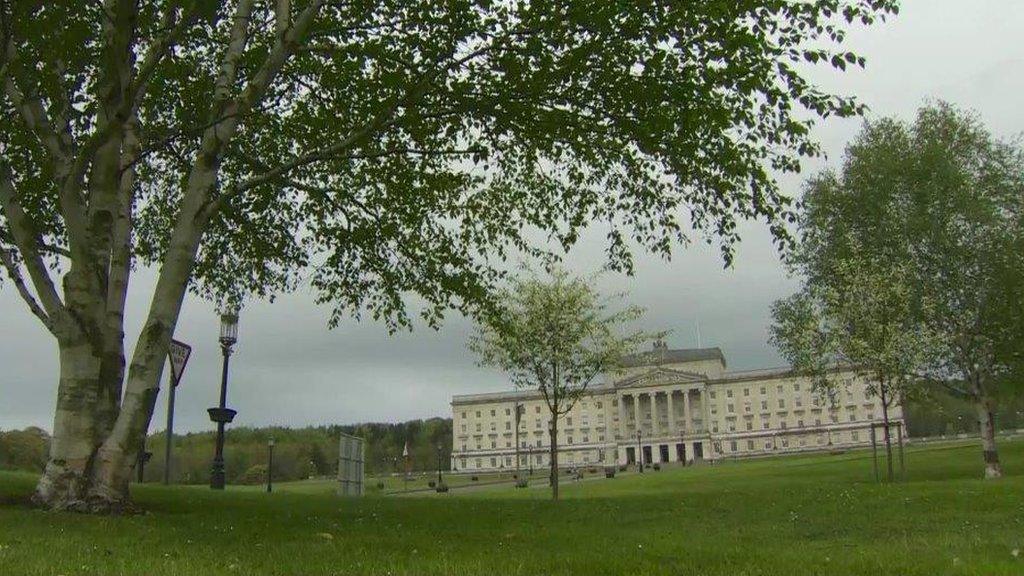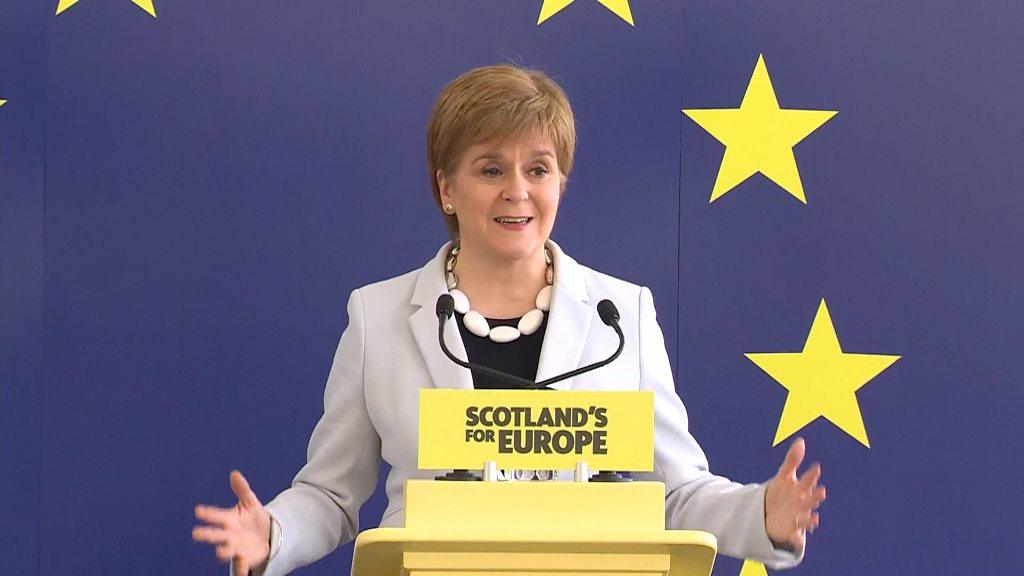Tory leadership contest: Next PM should 'turn on the spending taps'
- Published
Conservative MP Neil O'Brien talks to Newsnight ahead of his new report on future spending
The next Tory leader should "turn on the taps" to release an extra £190bn for spending increases and tax cuts, a former adviser to George Osborne has said.
In a break with a decade of austerity, Neil O'Brien calls for a "new era" in tax and spending to help less affluent households.
Funded by cutting government debt at a slower rate, the plans would increase incomes for some poorer families by £6,200 a year.
The Conservative MP for Harborough told Newsnight: "There is scope to really turn on the taps to increase living standards by cutting taxes for hard working people and at the same time really invest in our public services."
The report by O'Brien, 'Firing on all cylinders, external,' has been published by the centre right think tank Onward and has been welcomed by five of the Tory leadership contenders.
This suggests the next Conservative leader could adopt a more relaxed approach to public spending.
Theresa May announced an end to austerity in her conference speech last year,but limited the main spending increases to the NHS.
One leadership contender, Michael Gove, said: "This report will kick start a debate the party needs to have... We need to show that it's the Conservatives who offer the best alternative to Jeremy Corbyn as we set out a positive vision for the future of the UK."
O'Brien, who served as an adviser to George Osborne while spending cuts were introduced, said the next Tory leader should free up an extra £190bn over four years by relaxing the chancellor's debt rule.
In the spending review later this year, the next chancellor should then announce they will use the extra money to help the less well off through spending increases and tax cuts.
O'Brien calls for changes to Universal Credit to raise the incomes of some low income working families by up to £6,200 a year.
As a first step, the government should increase incomes for such families by up to £1,900 a year by raising work allowances in the Universal Credit scheme by around £3,000. Work allowances are the amount of money you can earn before your benefits start to be reduced.
As a second step, O'Brien says the government should introduce a new second earner worker allowance in Universal Credit. This would increase income for some poorer families by a further £4,300 a year.
The report also calls for:
Help for families in low to mid income brackets by making changes to national insurance - increasing the National Insurance Primary Threshold for people with children would recognise children in the tax system for the first time since the 1970s and would raise the post tax income of a two-earner couple by £1,100
School spending to return to the 2015 record level of real (inflation proof) spending per pupil
An ambition to cut corporation tax to the Irish rate of 12.5% - which it hopes would encourage investment and help tackle the UK's "chronic low productivity"
Chancellor Philip Hammond has ruled that public sector net debt should be falling as a share of GDP by 2020-21. In this year's spring statement the Office for Budget Responsibility forecast that debt as a share of GDP would fall from 83.3% in 2018-19 to 73% in 2023-24.
In his report, O'Brien says the next chancellor should use the planned spending review later this year to hold debt "constant as a share of GDP" starting in the current financial year. In other words the level of debt should remain flat or should fall at a slower rate.
O'Brien argues that this would release resources without jeopardising the public finances in light of the government's success in reducing the fiscal deficit.
The fiscal deficit, which rose to 9.9% as a proportion of GDP in the immediate aftermath of the financial crash, is the gap between the amount the government spends every year and the amount it raises. This gap has to be funded by borrowing which leads to an accumulation of government debt.
O'Brien told Newsnight: "Because the government has now got debt under control... We could potentially increase spending and also cut taxes by £190bn over the next four years and still have debt stable.
"We are inevitably into a new era. After nine years, where the priority has been to get that record deficit under control, we are now into a period where debt to GDP is falling. That means there is much more scope for us to invest in our public services, to cut taxes and really turn on the taps in the way we have not been able to during the period where we have been clearing up Labour's mess."
You can watch Newsnight on BBC Two weekdays at 22:30 or on iPlayer, subscribe to the programme on YouTube, external and follow it on Twitter, external.
- Published10 May 2019

- Published9 May 2019

